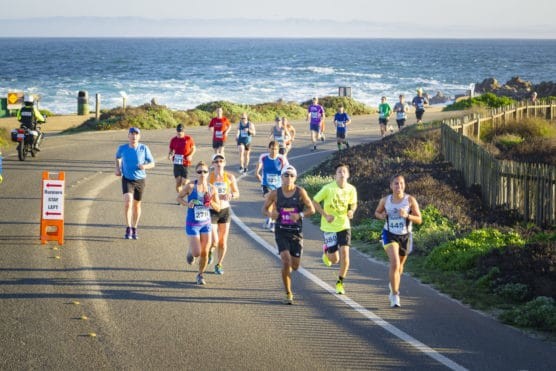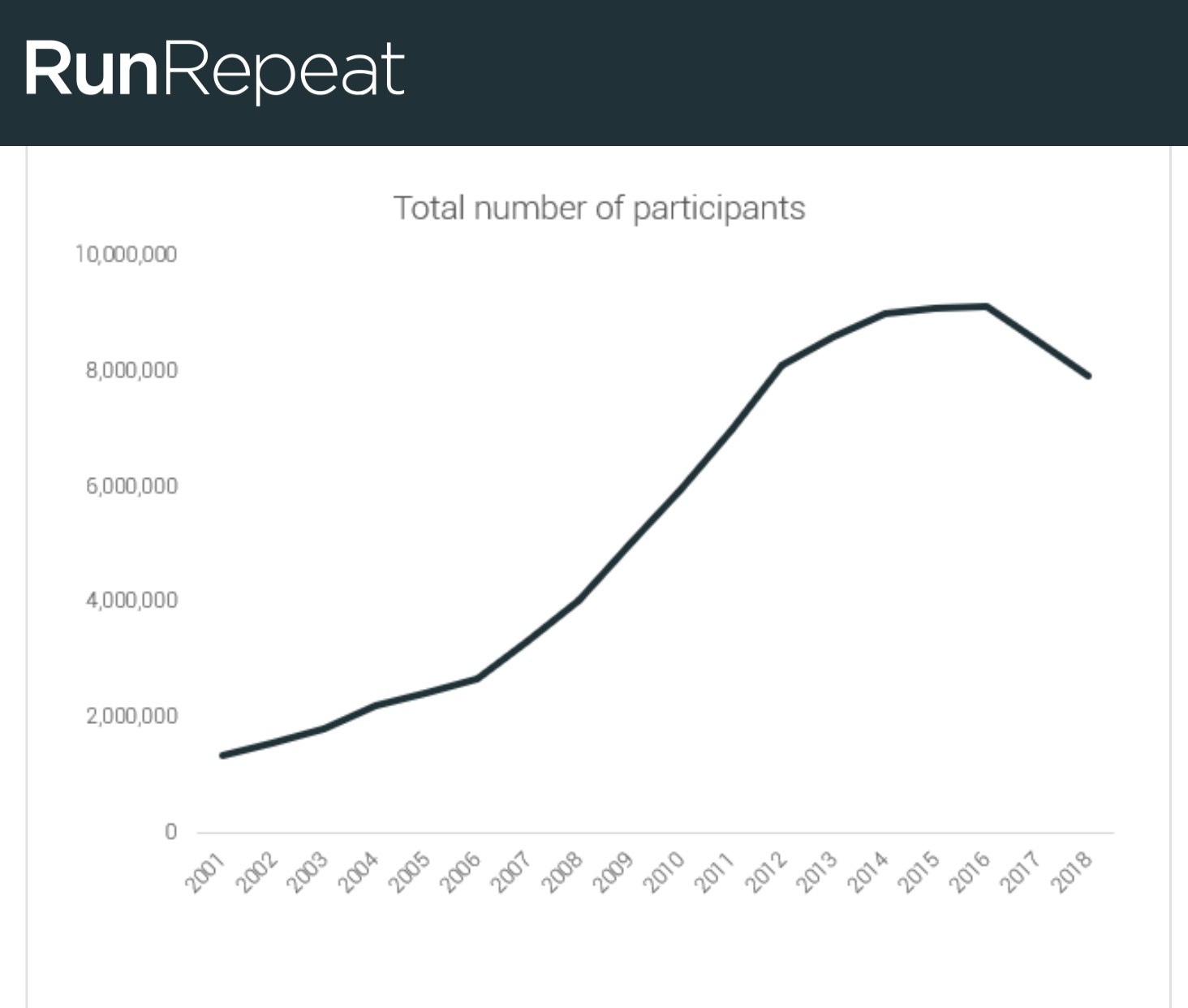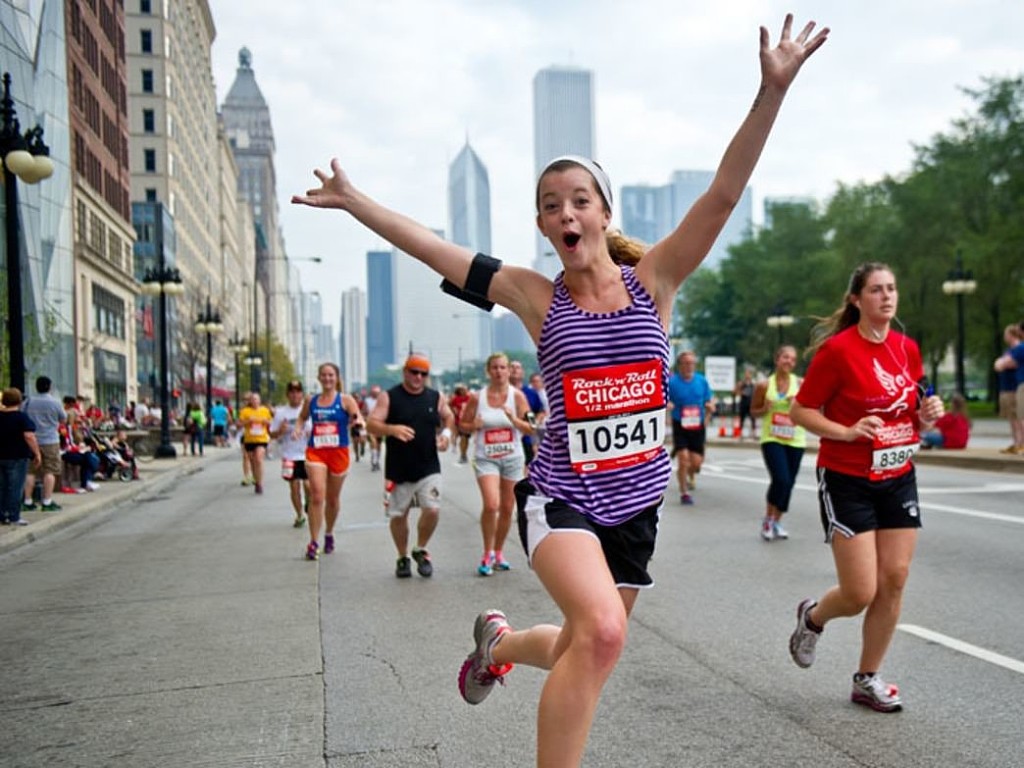Running News Daily
Running News Daily is edited by Bob Anderson. Send your news items to bob@mybestruns.com Advertising opportunities available. Train the Kenyan Way at KATA Kenya and Portugal owned and operated by Bob Anderson. Be sure to catch our movie A Long Run the movie KATA Running Camps and KATA Potato Farms - 31 now open in Kenya! https://kata.ke/
Index to Daily Posts · Sign Up For Updates · Run The World Feed
Runners are getting slower but they are getting older as well
Runners are getting slower. How much slower? According to statistician Jens Jakob Andersen and mathematician Ivanka Nikolova, today’s average recreational male marathoner takes an additional 40 minutes, 14 seconds to cross the finish line as compared with 1986, when the average finishing time was 3:52:35. Nowadays it takes the average male marathoner 4:32.49 to run 26.2 miles (42K).
Women’s times have also gotten slower, adding an extra 38 minutes, 19 seconds to their finishing time. But unlike the men, whose times have been on a steady incline, the women found a burst of speed sometime after 2001. Today’s times are four minutes faster than those posted in the early 2000s (4:56.18), with the average female marathoner now clocking in at 4:52.10.
This slowing trend isn’t limited to the marathon. It spans all popular distances: marathons, half marathons, 10K and 5K, and encompasses runners in most age groups.

Andersen has a runners’ love of numbers. Based out of Denmark and a founder of RunRepeat.com, he combed through 107.9 million race results (recreational runners only – elites were excluded) from 70,000 events held in 193 countries between 1986 to 2018. He claims the data represents “the largest study of race results in history.”
The slowest marathoners are from the United States and the fastest finishers from Spain. Canadians rank mid-pack among nations, behind Spain, Australia, Germany and Sweden, but faster than the Americans, the French and runners from the UK.
Part of the reason race times are increasing is that runners are getting older. The average age of runners in 2018 is 39.3 years, four years older than in 1986.
“It’s not the individual who’s getting slower, but the average of all runners, meaning that the “demography” has changed,” suggested Andersen. “More slow runners participate.”
But Andersen didn’t just look at the marathon. His data includes races of all distances, noting that half-marathons and 5Ks are the most popular distances worldwide, with the number of half-marathoners accounting for 30 per cent of race results — up from just 17 per cent in 1986. Marathoners, on the other hand, are on the decline, accounting for just 12 per cent of racers.
All tolled, there are 7.9 million runners competing recreationally in races across the globe, a 57.8-per-cent increase in participation in the last 10 years, making running a popular pastime for a significant swath of the population. The numbers are down from 2016, when the sport peaked at 9.1 million results.

But participation numbers and finishing times aren’t the only thing to change over the last few years. Andersen says that today’s runners are less likely to be achievement-focused. Instead they’re more interested in having a great experience than posting a personal best. Certainly the slower pace of the recreational field supports this theory, with the average marathoner clocking 6:43 per kilometre for men and 7:26 for women.
The fastest runners are the half-marathoners, who maintain a 5:57 pace per kilometre for men and 6:40 per kilometre for women, a trend that suggests some of the faster marathoners may be moving to the half-marathon distance. The slowest runners are in the 5K (7:21 men and 8:44 women), which typically attract the largest crowd of new runners.
How do the runners in the United States stack up? In the 5k men and women both rank 25th in the world. The average men’s time is 35 minutes and women 41 minutes. The Ukraine is the number one country with their average men’s time being 25:08 and women’s 29:26.
For the half marathon US men are ranked 35th in the world averaging 2:02 while Women at 34th averaging 2:26. Russia leads the world for both men (1:40) and women (1:50).
In the marathon US men and women are ranked 36th in the world. Men’s average finish time is 4:31 and women are 4:57. Spain leads the world for men with an average time for men being 3:49:21. Switzerland leads the women with 4:04.
How do Canadians measure up against the global competition?
Our female runners rank second in the world in female participation and 13th in speed. As for the Canadian running landscape, we boast the third-largest growth in participation in the 5K over the past 10 years. But like the rest of the world, we’re getting slower. The average Canadian marathon time increased by 1:10 minutes/seconds over the past 10 years. The half-marathon got 2:33 minutes slower, the 10K got 0:29 seconds slower and the 5K 4:34 minutes slower over that time period.
But one of the most notable trends in running over the past 30 years is the increased number of women, with total female participation going from just under 20 per cent in 1986 to just over 50 per cent in 2018. In 5K races, women make up 60 per cent of the field. Once a male-dominated sport, the Olympic marathon was only opened up to women in 1984, 88 years after the men’s marathon made its debut in 1896. But it looks like we’re doing a pretty good job of making up lost time.
by Jim Barker
Login to leave a comment




